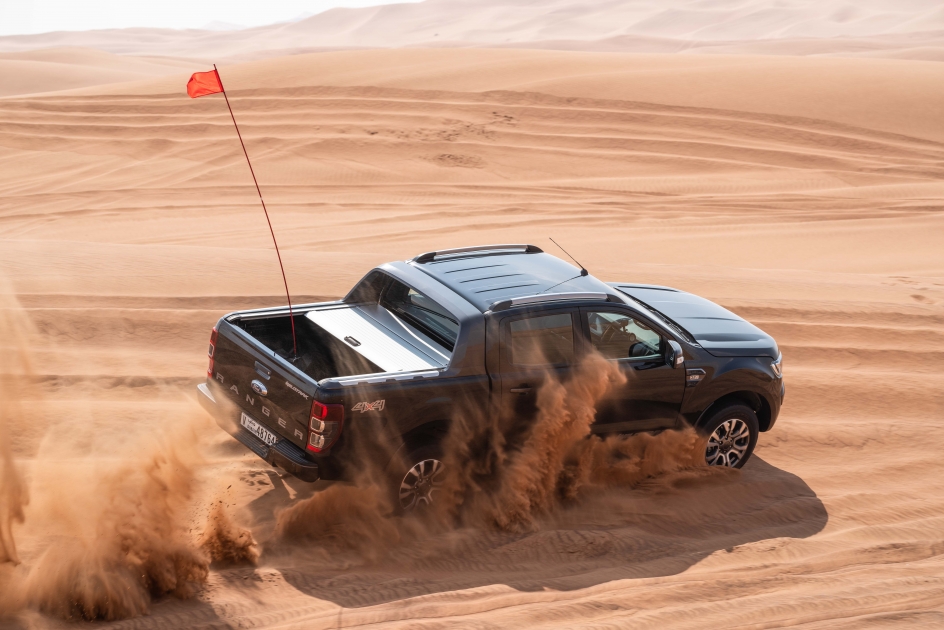
Ford Launches its New Desert Driving Tips Series with First Episode: Off-road Vehicle Basics
The Middle East has some of the best desert driving spots in the world, and while many take to the dunes over the cooler months, others are put off by the possibility of spending more time in the desert than they may have planned to.
Getting stuck is real concern for many – but with a few simple steps and a little knowledge, driving in the sand can be a lot of fun. It will take you to places you’ve never been before, and give you a chance to experience the Middle East in a unique and exciting way.
To help you enjoy the region’s remote reaches, Ford has put together a six-part series of helpful videos covering the basics of desert driving – giving adventurers the advice they need to get off the beaten path and into the dunes this winter.
Episode one centres on choosing the right vehicle to go off-roading with. Given the right conditions and in the hands of expert drivers almost anything can be driven in the desert but for the rest of us, four-wheel-drive is a must. But not all four-wheel drives are created equal, and while many crossovers now come equipped with all-wheel-drive, some may not be suitable for a life negotiating soft, deep sand.
“You really need to look at a vehicle that has good ground clearance, four-wheel drive with low-range and the capability to be taken out in the dunes,” said Mike Chavez, series co-host and Ford Middle East Product Development Lead Technologist. “Crossovers are usually limited in their ground clearance, and approach and departure angles which are typically less than you need for off-roading. This is great for aerodynamics and fuel economy in daily driving, but when you come off-road and into the sand, you could damage the vehicle or get it stuck.”
Four-wheel drive not only channels engine power to each wheel but a low-range setting allows drivers to tap more of the engine’s torque and driving out of sticky situations.
To help get the most out of the available traction on loose sand, drivers deflate their tyres before leaving the road. With more tyre in contact with the ground, the weight of the vehicle is spread over a wider area, allowing it to float on top of the sand.
“The wheel and tyre combination on a vehicle like the Ranger gives you more tyre, so when you deflate it allows you to stay on top of sand and not dig in and get stuck,” Chavez added.


























